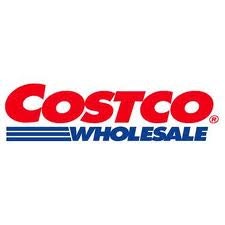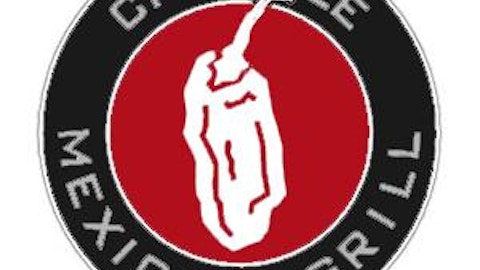It seems unlikely that The Fresh Market Inc (NASDAQ:TFM) and Whole Foods Market, Inc. (NASDAQ:WFM) would have an existing major competitor. After all, most of the other brands out there focus on cheap food and large selection instead of on sourcing and quality. But there’s a lurking competitor that’s searching out the same demographic, through a very different route — Costco Wholesale Corporation (NASDAQ:COST).
Costco Wholesale Corporation (NASDAQ:COST)’s management pointed out on its last earning call that foot traffic was being driven by two major factors: gas sales and fresh food. That fresh food portion is going to cut right into the sales at Whole Foods Market, Inc. (NASDAQ:WFM) and The Fresh Market Inc (NASDAQ:TFM), and if those companies aren’t careful, Costco’s going to walk all over them.
It’s all about the customer
As early as 2009, Whole Foods saw the competition that was brewing with Costco Wholesale Corporation (NASDAQ:COST). At the time, the economic downturn made it abundantly clear that customers were price-conscious, whether companies believed it or not. Whole Foods co-CEO John Mackey gave an interview with The Wall Street Journal in which he highlighted the difficulty that Whole Foods had in competing. While the company was capable of managing the competition from Trader Joe’s, Mackey said that it was “harder to match Costco Wholesale Corporation (NASDAQ:COST) without going bankrupt.”
Costco Wholesale Corporation (NASDAQ:COST)’s benefit is clearly the company’s store model, which allows customers to browse a huge selection in a warehouse environment. That model is in stark contrast to Fresh Market and Whole Foods, both of which use wood, tiles, and lush signage to make customers more comfortable.
The stripped-down nature of Costco, along with its membership revenue stream, means that the company can compete on those fresh products in a way that Whole Foods just can’t. As the organic food machine grows — generating more than $30 billion in revenue annually — more organic produce is going to find its way into Costco, and more customers are going to turn to the warehouse for cheaper food.
Well — it’s also about the economy
The original quote from Mackey came at a time when the American economy was near its bleakest. While we’ve come a long way, there’s still time for things to fall apart. Costco is in a position where it benefits as the economy gets stronger, as more people feel like they can afford membership, and when the economy goes downhill, as more families look for bargains.
Whole Foods has had awesome comparable-sales growth, and last quarter its operating margin hit 7.5%, so it’s in a good position if things slow down a bit. In my mind, The Fresh Market is really the only business that needs the economy to keep picking up. The company has recently expanded into new areas, like California, and it needs less-price-sensitive buyers to build its brand loyalty. That said, when it works, it works well. The company managed a 9.7% operating margin in the first quarter, which allows for lots of wiggle room.
In the end, I just can’t fault the win-win scenario that Costco has gotten itself into. On top of that, the stock trades at a substantial discount to both Whole Foods and Fresh Market, sporting a trailing P/E of 24 versus 36 for both of the high-end brands. While I like all three of the businesses, Costco looks like it’s in a position to make a big dent in the traditional grocers’ bottom lines.
The article The Grocery Competition You Never Saw Coming originally appeared on Fool.com and is written by Andrew Marder.
Fool contributor Andrew Marder has no position in any stocks mentioned. The Motley Fool recommends Costco Wholesale (NASDAQ:COST), The Fresh Market, and Whole Foods Market and owns shares of Costco Wholesale and Whole Foods Market.
Copyright © 1995 – 2013 The Motley Fool, LLC. All rights reserved. The Motley Fool has a disclosure policy.



